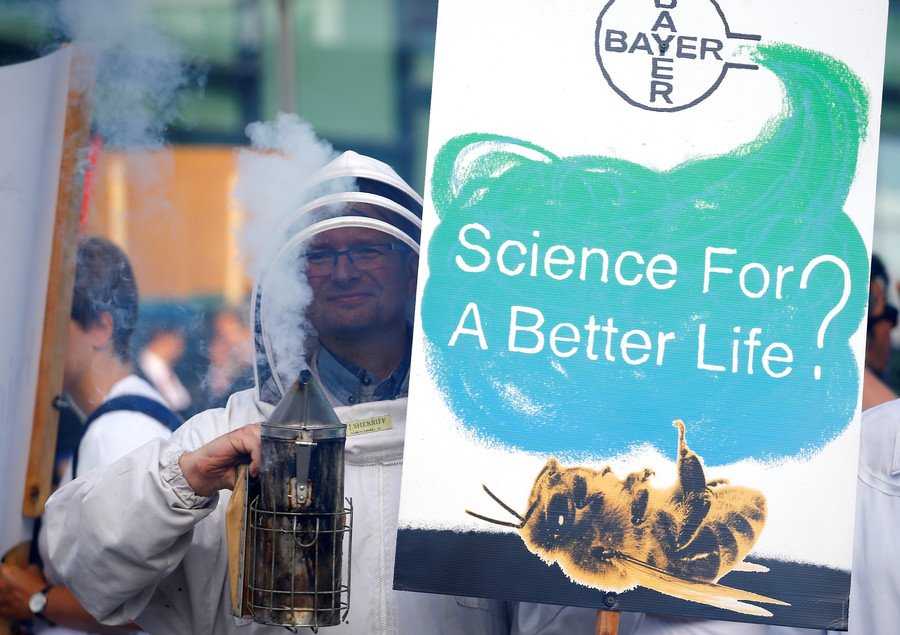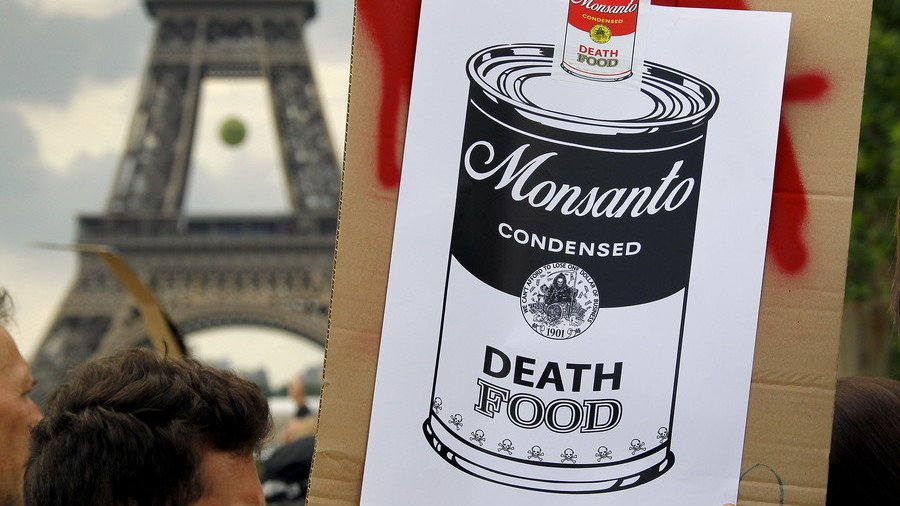Two new studies show how extensively Monsanto’s best-selling herbicide glyphosate has permeated our food chain. Designated carcinogenic by some health authorities, it was found in over 40 pet foods and breakfast cereals.
Researchers at Cornell University found glyphosate in all 18 of the dog and cat food brands they surveyed, including one product that was certified GMO-free. They stressed that the chemical was present in low concentrations – lower than those typically found in human food, at least – but glyphosate's effect on domestic animals in any concentration is unknown, and studieshave found human cells to show negative effects when exposed to levels of glyphosate-based herbicides far below those deemed "safe" by regulators.
They were unable to track the source of the glyphosate, though a correlation with fiber suggested it was coming from plant material. Interestingly, the GMO-free product revealed glyphosate levels higher than many of the processed feeds, suggesting that merely following organic procedures is not enough to mitigate the invasive effects of agricultural chemicals.
A second study, conducted by the Environmental Working Group (EWG), found glyphosate in every oat-based cereal and food tested. Worse, 26 of the 28 products tested contained higher levels of the weedkiller than the EWG's "children's health benchmark." Products tested included Quaker and General Mills breakfast cereals, oatmeals, and snack bars. The worst offender was Quaker Oatmeal Squares, whose Honey Nut flavor contained nearly 18 times the levels of glyphosate EWG considers acceptable.
The EWG study followed up on a study they published in August that revealed glyphosate in all but two of 45 products made with non-organic oats, and even in a third of the organic oat products. While manufacturers protested that the glyphosate levels were within Environmental Protection Agency (EPA) regulatory limits, those limits were set prior to the World Health Organization's 2016 findings linking glyphosate to cancer.
Even the Food and Drug Administration (FDA) finally released its own study last month, finding two-thirds of corn and soybean samples contained glyphosate, though the agency conspicuously neglected to test oat or wheat crops.

Last week, a California court upheld a ruling that found Monsanto responsible for groundskeeper Dewayne Johnson's non-Hodgkins lymphoma, which he developed shortly after being doused in the company's Roundup in an accident on the job. The ruling opens up the agri-chemical giant to thousands more lawsuits from others who have experienced negative health effects from exposure to glyphosate.


